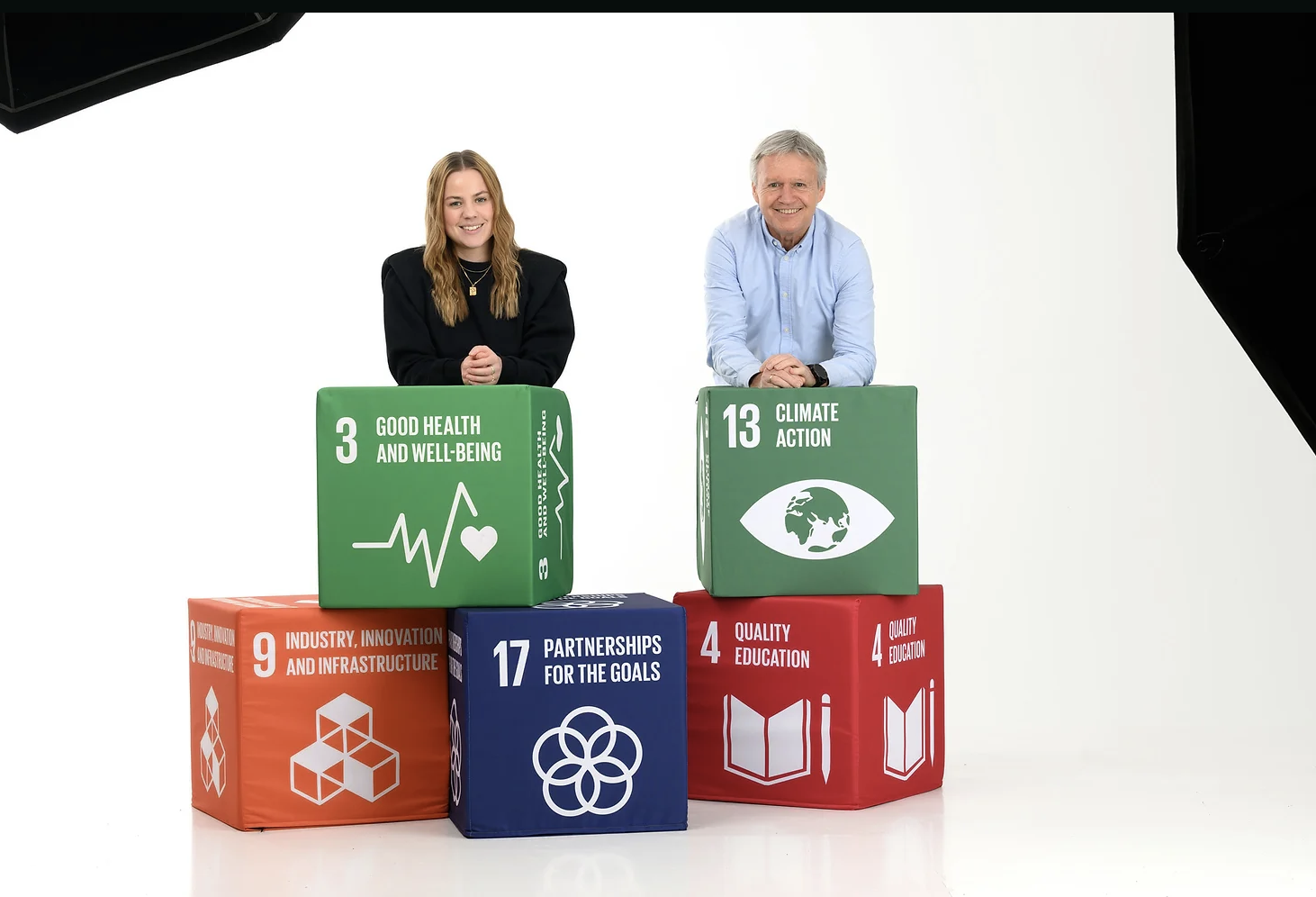Healthcare giant new partner
Laerdal Medical is one of Norway's most successful global industrial groups. Now they want to use the Terravera platform to gain increased understanding related to recycling within the healthcare sector.
- We are excited about this project and how we can improve analyses and understanding of our value chains. We like the concept of connecting academia and research environments with business. With valuable analyses and data that can be used through this model, says Sara Fossum, Sustainability Manager at Laerdal Medical.
World Leading
Laerdal Medical is a multinational manufacturing company in the healthcare sector with over 2,000 employees in 26 countries, product development in four countries, and factories in Stavanger, China, the USA, and Mexico. With 98% of its sales going to export and revenues exceeding NOK 4 billion, Laerdal is one of Norway’s most successful global industrial groups. The company has long been a world leader in training and treatment equipment for life-saving first aid. This family-run business, spanning multiple generations, has produced health technology products for a range of sectors, primarily healthcare and education.
Laerdal is driven by its mission, “Helping save lives,” and by its vision that no lives should be lost unnecessarily. The company aims to help save an additional one million lives every year by 2030.
Focus on the Sustainable Development Goals
Laerdal’s goal of saving lives is the company’s top priority, closely tied to UN Sustainable Development Goal 3 – Good Health and Well-being. The company therefore focuses on developing solutions with a high “Helping save lives impact.” At the same time, they strive to do so in the most sustainable way possible by creating low-emission and circular solutions.
“We aim to be climate-neutral by 2030, with a 70% reduction in our value chain emissions, including scopes 1, 2, and 3. ‘Measure to improve’ is a key focus for us, and we see the importance of having good data on our current status to understand where we’re headed. We use a combination of spend-based and activity-based data to calculate emissions so that we have high-quality data on our material areas while capturing our total emissions overall,” says Fossum, pointing to three main focus areas:
Net zero sites and reduced travel; renewable energy, energy efficiency, and digitalization
Best-in-class logistics; minimized air transport, optimized modes and routes
Minimized product emissions; durable and circular design, green materials, and digitalization
The company is also exploring other circular business models, digital solutions, and more modular products.
Industry Challenges
“Greener materials, such as recycled ones, are a key element of our transition. Although we see progress in this area, it takes time, and these alternatives are often significantly more expensive than virgin materials. Another major challenge is the recycling of products at the end of their lifespan. Our products are complex, made from a mix of various materials like plastics, electronics, metals, and textiles. It’s difficult to find recycling solutions, partly due to a lack of infrastructure and suitable partners,” says Fossum.
“In addition, we face challenges related to the lack of environmental standards in our industry. This makes product life-cycle assessments difficult and also leads to misaligned expectations from customers,” she adds.
Laerdal Medical has already started conducting life-cycle assessments for its products and hopes Terravera can help increase understanding of its sustainability efforts.
“So far, we’ve carried out analyses for more than 30 of our best-selling products. Our products are complex and often contain textiles, electronics, and different plastics. This makes recycling complicated, with significant potential for improvement at the end-of-life stage and in recycling methods. We hope this will give us a better understanding of quality and material preservation so that they can be recycled to the same grade as before. We also hope Terravera can provide deeper insight into all the factors and implications tied to recycling.”
Encouraging Industry-Wide Collaboration
“We also want to encourage common standards for our industry. Moreover, we’re open to collaborating with others to push for greener solutions, especially in plastics, electronics, metals, and textiles. More bio-based, recycled, and recyclable materials would benefit the entire industry—and the environment. We need collaboration to establish the necessary infrastructure for the green transition, as well as visibility and valuation for greener solutions among suppliers. To strengthen the push for collective solutions, we’re also a member of SKIFT,” Fossum adds.
Terravera is proud of this new partnership and looks forward to discovering greener solutions for the healthcare sector.

